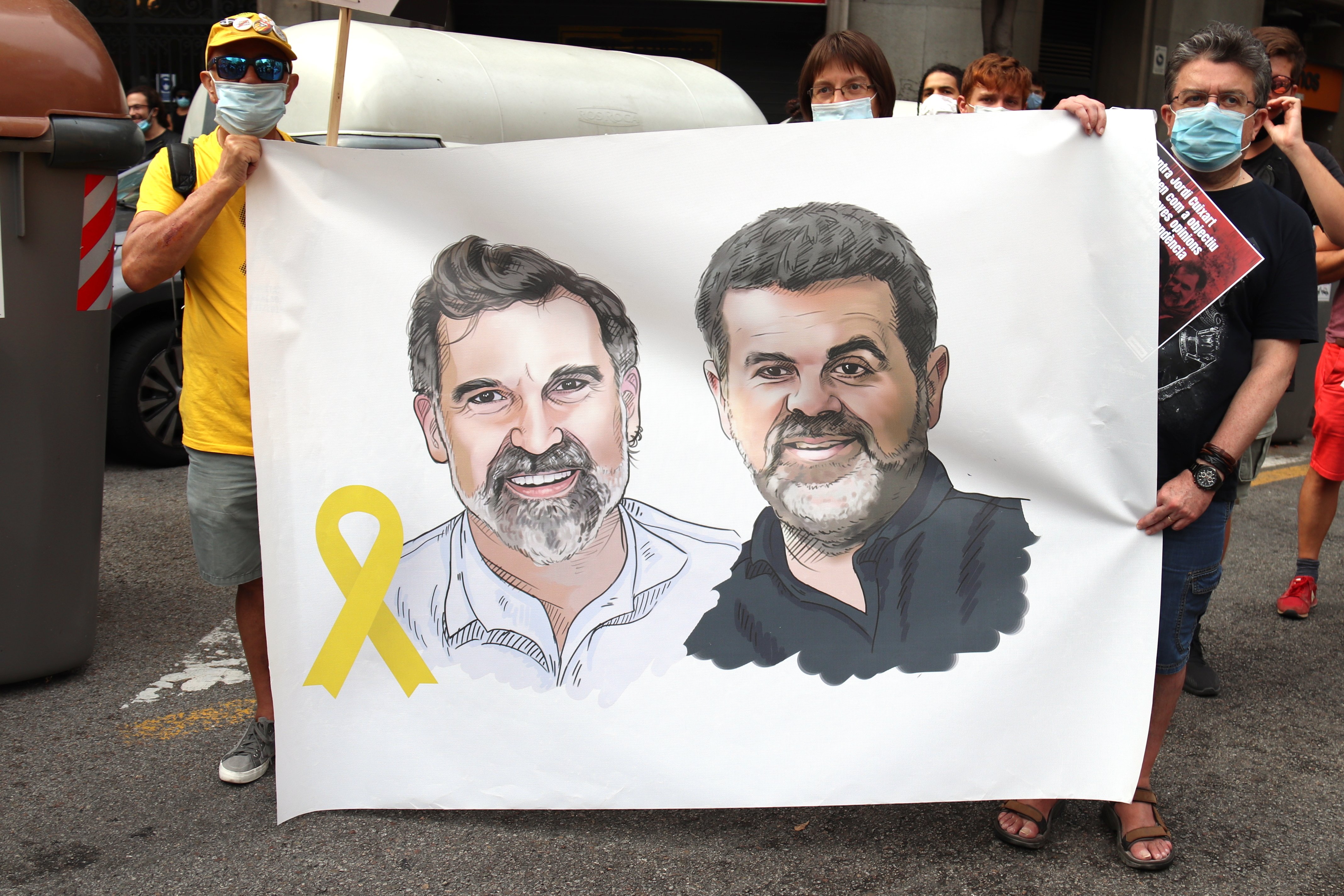The director of Amnesty International in Spain, Esteban Beltrán, considers that the Catalan pro-independence leaders imprisoned for their roles at the head of civil society organizations in 2017, Jordi Sànchez and Jordi Cuixart, should not be in prison, which is why their pardon would be "good news", although not the best outcome of all, "because it implies acknowledging a crime they did not commit."
At a meeting of the Spanish business organization Nueva Economia Fórum reported by EFE, the head of the leading human rights organization in Spain detailed the position held by the organization with respect to the pro-independence leaders convicted in the 2019 Supreme Court trial.
"For us, Jordi Sànchez and Jordi Cuixart are people who have been unjustly imprisoned, by means of the crime of sedition, which is legally ambiguous and has been interpreted incorrectly, because they were not accused of any violent act and I think they should never have gone to jail," said Beltrán. "Therefore, a pardon is not the best way out, because it involves acknowledging a crime, which in our opinion they did not commit, but it is good news if it is granted because it means that two people who are unjustly imprisoned would be set free," he argued.
The rest of the Catalan political prisoners
With regard to the other defendants, Amnesty International's position is more guarded. "They are government authorities, not members of civil society, and different, illegal actions could be committed here. Amnesty does not question the Constitution in this regard; the principle of legality in the trial should be reviewed because we believe that the crime of sedition should not have been applied".
Other questions
Beltrán also referred to Spain's arms sales to countries such as Saudi Arabia and Israel, and recalled that there is a Spanish law from 2007 that "must be respected", which states that weapons must not be exported if a series of conditions are not met, banning their export to war zones and to countries which violate human rights. "Legislation exists and is being violated."
On the pandemic, he believes it is time to reinforce the national health system - "if it is not done now, it won't be ever" - and that an end to the pandemic will only be possible if vaccination is carried out in every country around the world.
Other Spanish laws that have to be changed, he argues, are those of Official Secrets, which is "from the Franco era and makes almost everything that the administrations do secret," and that of Citizen Security - the so-called "Gag Law". "Freedom of expression exists in Spain, but opposing this freedom there are threats, sometimes major and sometimes unknown. In general, states have the tendency to make their information flows less transparent and this must be corrected," he concluded.

